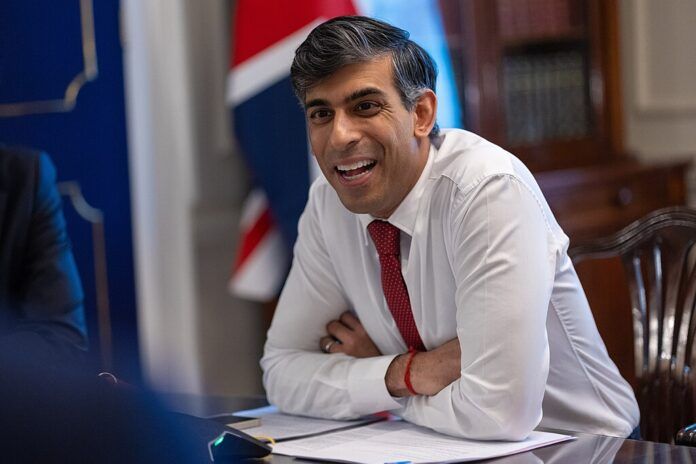The salary hike for MPs, exceeding inflation rates, sparks discussions on public and personal finances
Rishi Sunak, the Prime Minister of the United Kingdom, has decided to accept a significant salary increase of 5.5% for his role as an MP, a decision that has stirred public debate given the current economic climate. This adjustment will elevate MPs’ salaries to £91,346 starting in April, up from the previous £86,584, as recommended by the Independent Parliamentary Standards Authority (Ipsa).
This salary boost surpasses the current consumer price inflation rate of 4%, noted in January, and is a considerable jump from last year’s increase of 2.9%. The raise comes at a time when many are grappling with financial hardships, highlighting the difference between the public’s and some officials’ economic realities.
Embed from Getty ImagesDespite the raise for his MP role, Sunak and other government ministers have opted not to accept any increases to their ministerial salaries, which are calculated separately. This gesture means that the salaries for ministers in the Commons have remained unchanged since 2010, as part of a voluntary decision to waive part of their earnings.
Sunak’s financial situation has been under scrutiny, especially after disclosures of his personal income. Last financial year, Sunak’s taxable income exceeded £2.2 million, including significant capital gains and investment income, with his MP and prime ministerial salaries constituting only 7% of his total income. His wealth, combined with that of his wife, Akshata Murty, is estimated at around £529 million, placing them among the wealthiest individuals in the country.
The decision to accept the pay rise has reignited discussions on the perceived disconnect between political leaders and the general populace, especially those struggling with the rising cost of living. Ipsa, however, defends the salary increase, emphasizing the importance of making the role of an MP accessible to individuals from all economic backgrounds, not just the financially affluent.
Ipsa’s stance reflects a broader initiative to ensure that public service remains a viable career path for people from diverse socio-economic statuses, thereby supporting a more representative parliamentary democracy.
As this decision unfolds, it serves as a focal point for ongoing conversations about economic disparities, public service compensation, and the role of government officials in addressing the financial challenges faced by their constituents
